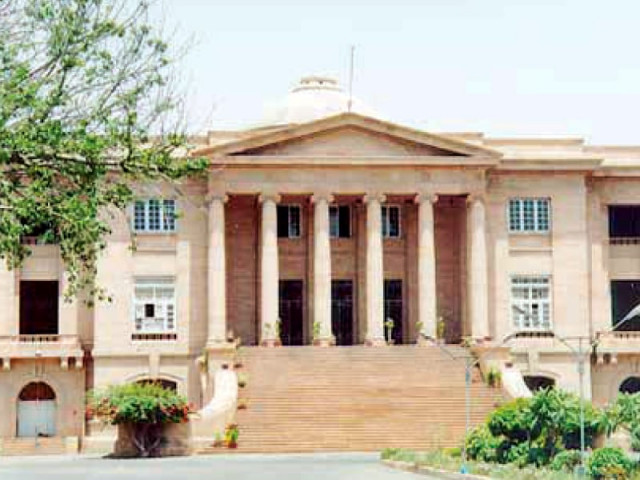Karachi:
Sindh High Court (SHC) came down hard on Sindh Building Control Authority (SBCA) on Tuesday over its passivity against illegal construction in the metropolis and designated the “most notorious institution in government” and instructs it to submit an compliance report before September 16.
The bench said in his remarks that a special grop in hell may be waiting for corrupt SBCA officers who allow illegal structures, knowing that the building could collapse and kill residents.
A bench with two members, led by Justice Muhammad Iqbal Kalhoro, heard a petition against illegal construction in Ramzanabad, Garden West. The petitioner’s lawyer, Farjad Ali Khan, claimed that only Earth Plus-en structures were allowed in the area, but a land-plus-four building had been erected where commercial activities were also underway in accordance with regulatory law.
Officials of Karachi Metropolitan Corporation (KMC) and SBCA appeared in court in accordance with previous orders. When asked what action had been taken since the construction of the building in 2000, the SBCA director said the case had only recently come to their knowledge and would now be acted according to the Court’s directives.
The bench expressed strong dissatisfaction with the response. “You don’t want to do your job? Why is a court decision He also observed: “Your job is only to make money from under the table. SBCA is the most notorious institution of the government. There will be a special place in hell for SBCA officers.”
The court ordered SBCA to intervene against the illegal construction and submit an implementation report during the next consultation.
LPG stores in the residential area
Sindh High Court (SHC) on Tuesday set aside a petition against the operation of Liquefied Petroleum Gas (LPG) business in the residential area of Delhi Colony after being informed that the stores had been closed.
The petition filed by lawyer Irfan Aziz stated that the presence of LPG stores in a densely populated locality posed a serious risk of accidents, which can cause damage to the residents in the event of an accident.
During the consultation, the government’s lawyer presented a report informing the court that two uncertain LPG stores had been sealed while a warning had been issued to comply with SOPs. Store owners had subsequently closed their business and submitted declarations on this.
The petitioner also claimed that commercial businesses could not be built on housing plots. However, the bench observed: “Don’t say that – stores have been built everywhere.”
Observing that the petitioner’s most important complaint had been dealt with, the court disposed of the case.



